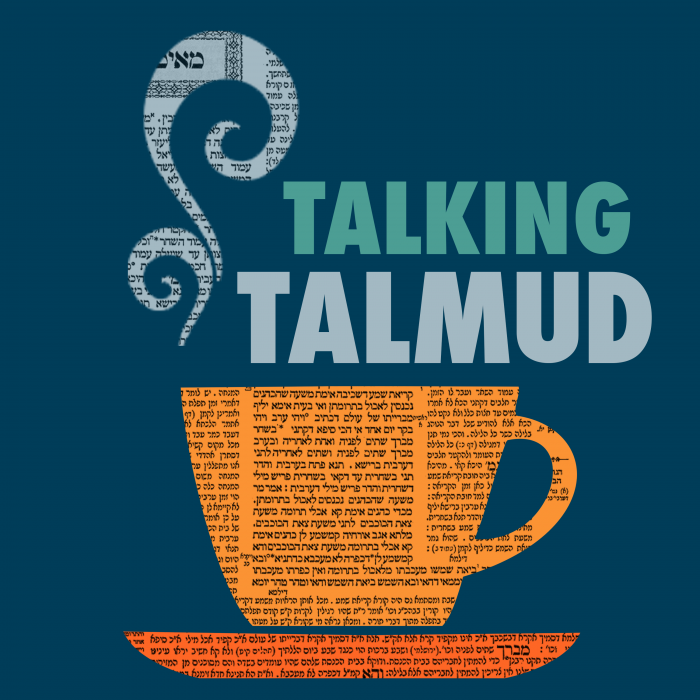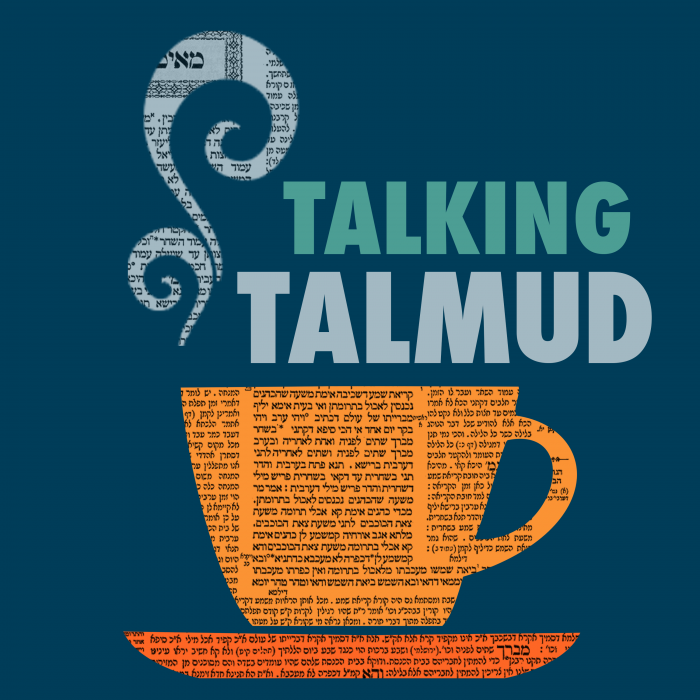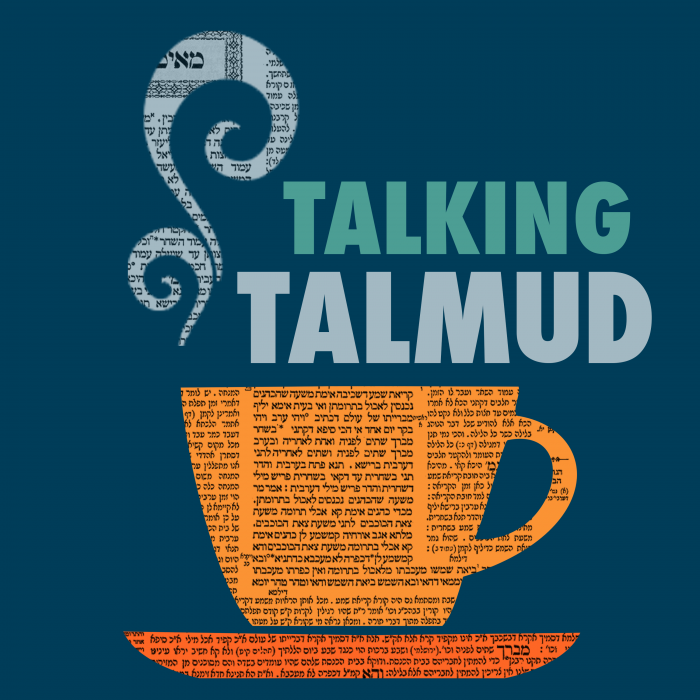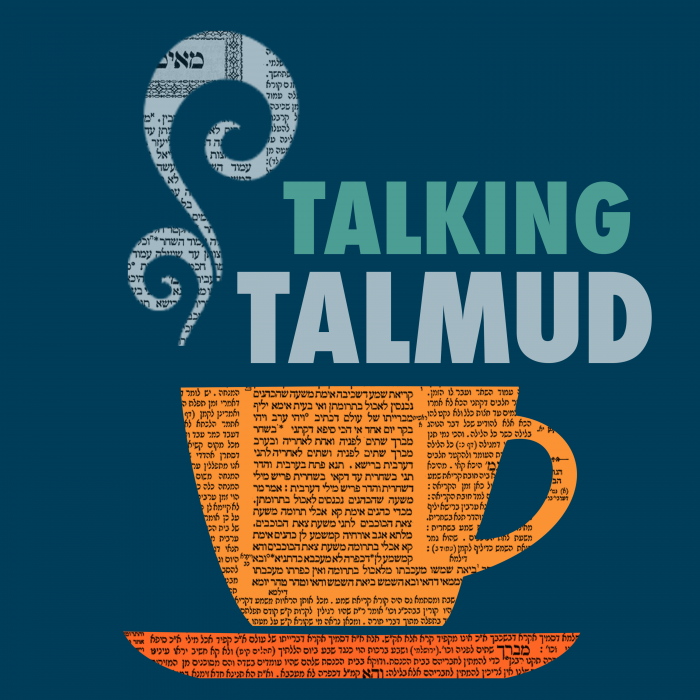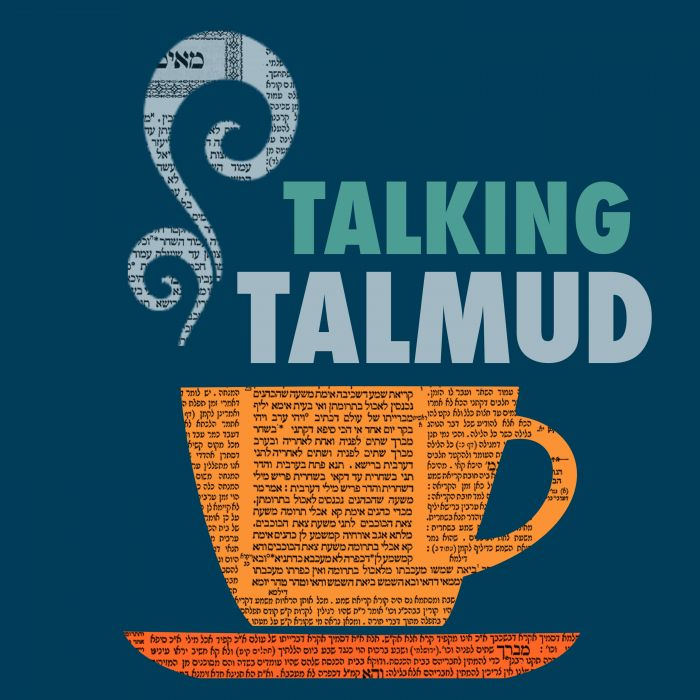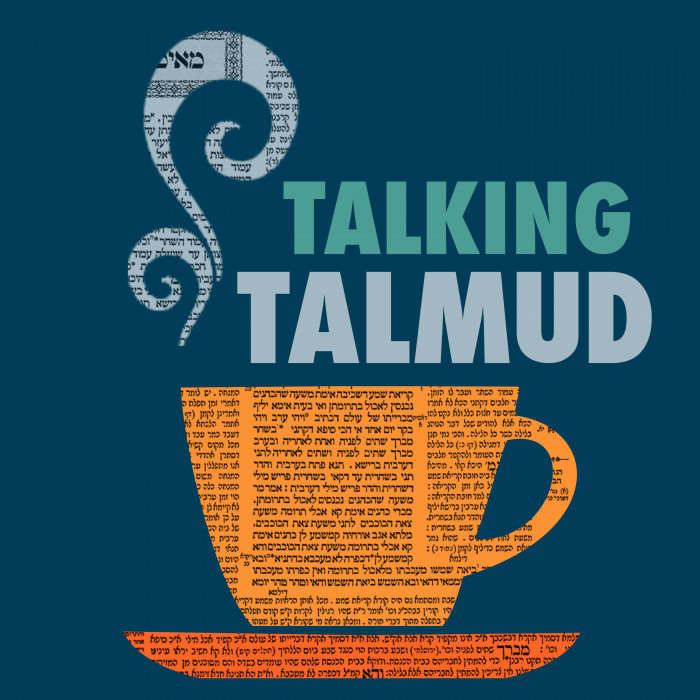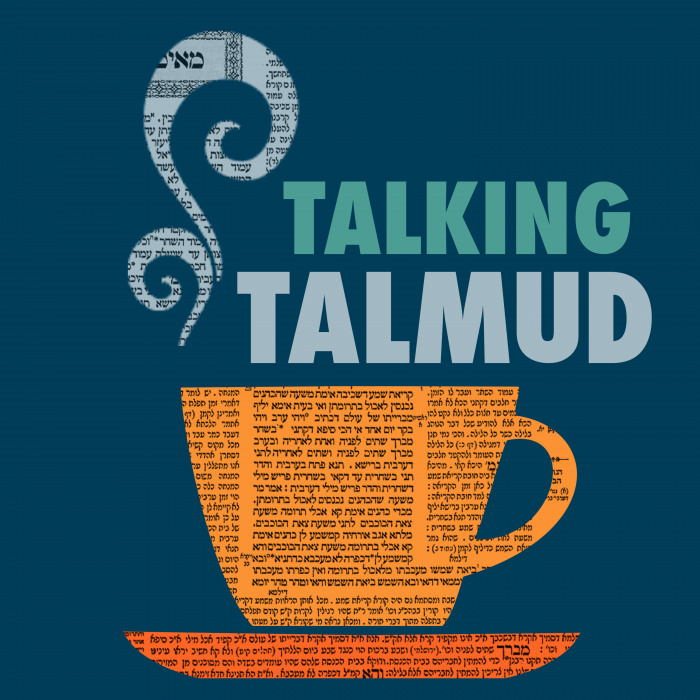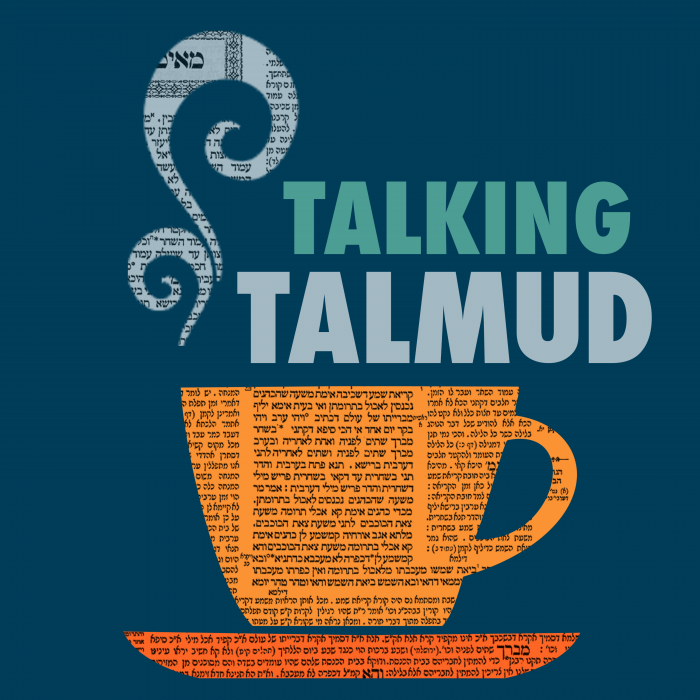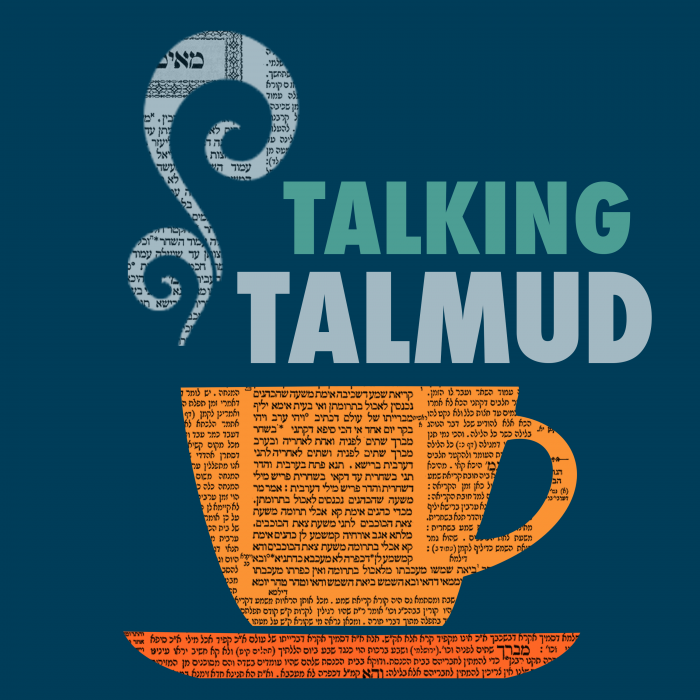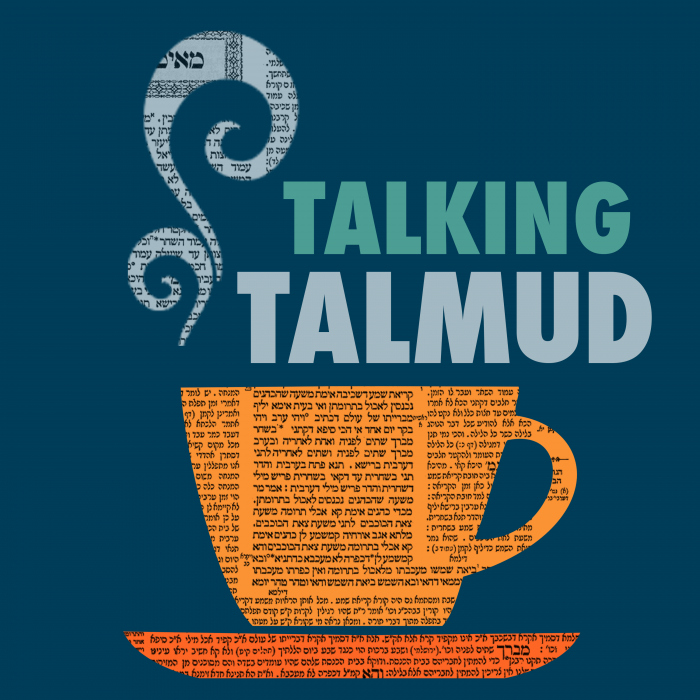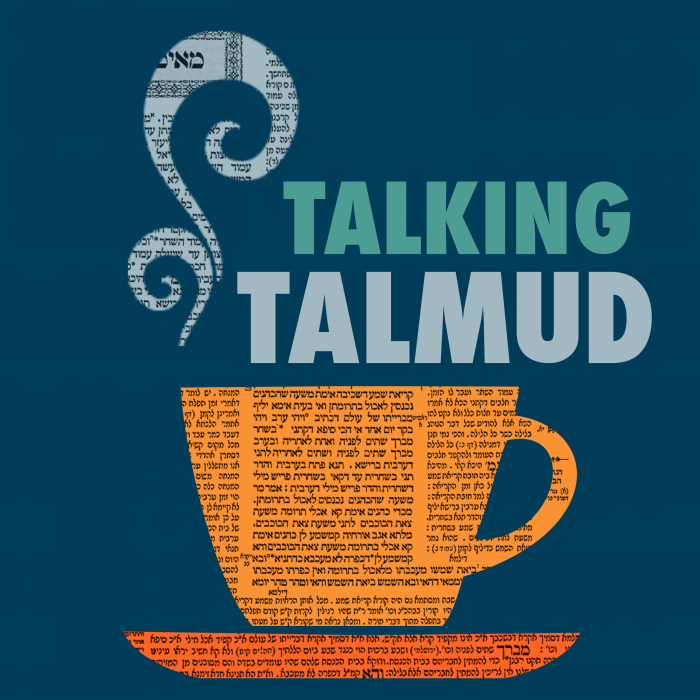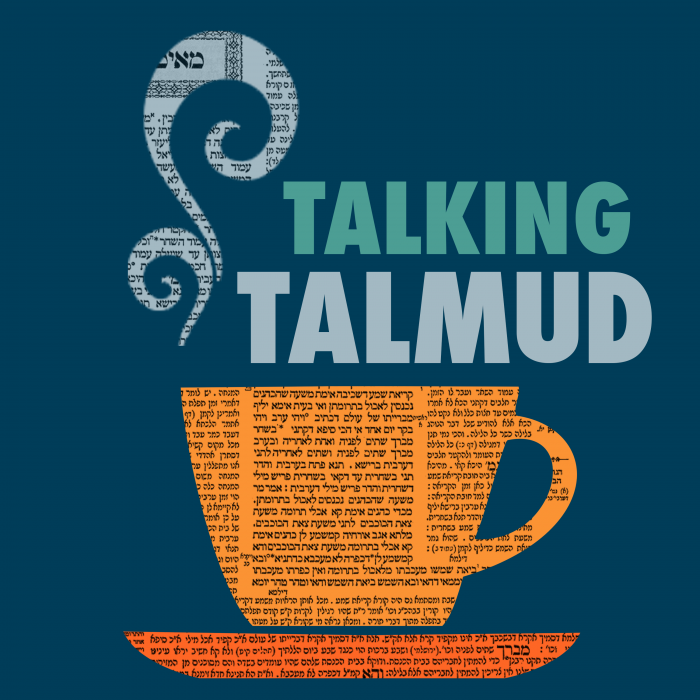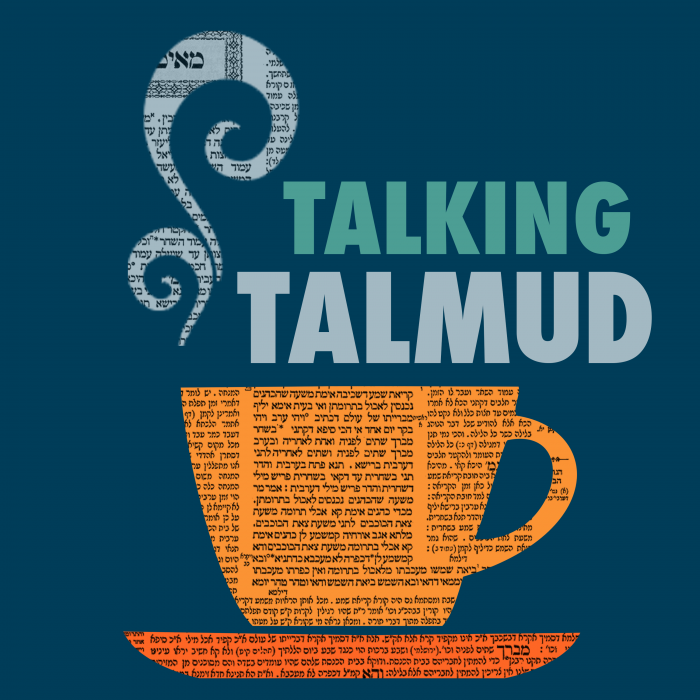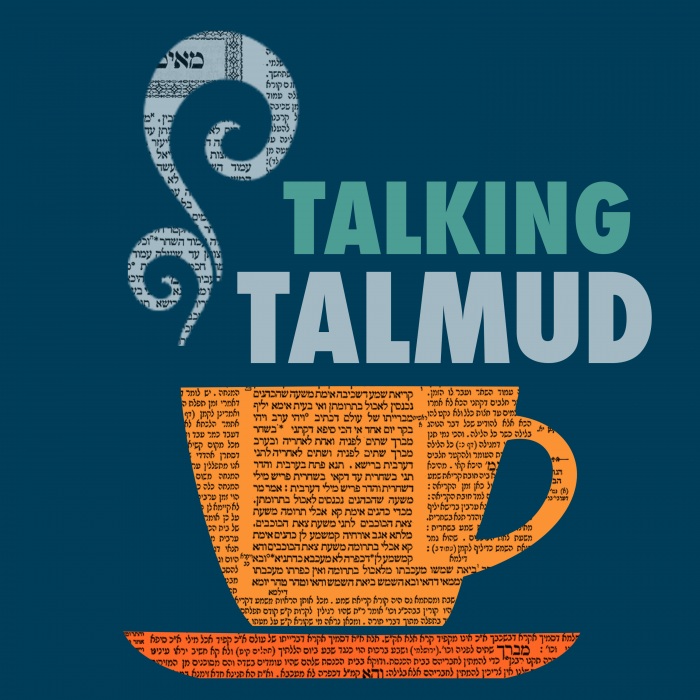Rabbi Eliezer says one can say shema until the end of the first watch. How many watches were there? Three or four? What are signs of each watch? Rabbi Yosi went into a ruin and prayed. Eliyahu Hanavi rebukes him for doing that. What are the three reasons why people can’t go into a ruin? Did King David wake up at midnight? Or before? How did he know even when midnight was if even Moshe Rabeinu didn’t know?
This month’s learning is dedicated to the refuah shleima of our dear friend, Phyllis Hecht, גיטל פעשא בת מאשה רחל by all her many friends who love and admire her. Phyllis’ emuna, strength, and positivity are an inspiration.
Want to dedicate learning? Get started here:


Today’s daily daf tools:
This month’s learning is dedicated to the refuah shleima of our dear friend, Phyllis Hecht, גיטל פעשא בת מאשה רחל by all her many friends who love and admire her. Phyllis’ emuna, strength, and positivity are an inspiration.
Today’s daily daf tools:
Delve Deeper
Broaden your understanding of the topics on this daf with classes and podcasts from top women Talmud scholars.
New to Talmud?
Check out our resources designed to help you navigate a page of Talmud – and study at the pace, level and style that fits you.
The Hadran Women’s Tapestry
Meet the diverse women learning Gemara at Hadran and hear their stories.
Berakhot 3
קַשְׁיָא דְּרַבִּי מֵאִיר אַדְּרַבִּי מֵאִיר! תְּרֵי תַּנָּאֵי אַלִּיבָּא דְּרַבִּי מֵאִיר.
The previous baraita cited Rabbi Meir’s opinion that the time for the recitation of Shema begins when the priests immerse before partaking of their teruma. In the Tosefta, it was taught that Rabbi Meir holds that one begins to recite Shema from when people enter to eat their meal on Shabbat eve. One opinion of Rabbi Meir seems to contradict another opinion of Rabbi Meir. The Gemara responds: Two tanna’im, students of Rabbi Meir, expressed different opinions in accordance with Rabbi Meir’s opinion.
קַשְׁיָא דְּרַבִּי אֱלִיעֶזֶר אַדְּרַבִּי אֱלִיעֶזֶר!
So too, the opinion of Rabbi Eliezer cited in the mishna contradicts the opinion of Rabbi Eliezer cited in the baraita. In the mishna, Rabbi Eliezer holds that the time for the recitation of Shema begins with the emergence of the stars: From the time when the priests enter to partake of their teruma, while in the baraita, he states that the time for the recitation of Shema begins when the day becomes sanctified on the eve of Shabbat.
תְּרֵי תַּנָּאֵי אַלִּיבָּא דְּרַבִּי אֱלִיעֶזֶר, וְאִיבָּעֵית אֵימָא: רֵישָׁא לָאו רַבִּי אֱלִיעֶזֶר הִיא.
The Gemara responds: There are two possible resolutions to the apparent contradiction in Rabbi Eliezer’s opinion. Either two tanna’im expressed different opinions in accordance with Rabbi Eliezer’s opinion, or if you wish, say instead that the first clause of the mishna, according to which we begin to recite Shema when the priests enter to partake of their teruma, is not actually Rabbi Eliezer’s opinion. Only the second half of the statement: Until the end of the first watch, was stated by Rabbi Eliezer.
עַד סוֹף הָאַשְׁמוּרָה.
In the mishna, we learned that Rabbi Eliezer establishes that one may recite the evening Shema until the end of the first watch. These watches are mentioned in the Bible as segments of the night, but it must be established: Into precisely how many segments is the night divided, three or four? Moreover, why does Rabbi Eliezer employ such inexact parameters rather than a more precise definition of time (Tosefot HaRosh)?
מַאי קָסָבַר רַבִּי אֱלִיעֶזֶר? אִי קָסָבַר שָׁלֹשׁ מִשְׁמָרוֹת הָוֵי הַלַּיְלָה, לֵימָא ״עַד אַרְבַּע שָׁעוֹת״. וְאִי קָסָבַר אַרְבַּע מִשְׁמָרוֹת הָוֵי הַלַּיְלָה, לֵימָא ״עַד שָׁלֹשׁ שָׁעוֹת״!
What does Rabbi Eliezer actually hold? If he holds that the night consists of three watches, let him say explicitly that one recites the evening Shema until the fourth hour. If he holds that the night consists of four watches, let him say explicitly until the third hour.
לְעוֹלָם קָסָבַר שָׁלֹשׁ מִשְׁמָרוֹת הָוֵי הַלַּיְלָה, וְהָא קָמַשְׁמַע לָן: דְּאִיכָּא מִשְׁמָרוֹת בָּרָקִיעַ וְאִיכָּא מִשְׁמָרוֹת בְּאַרְעָא. דְּתַנְיָא, רַבִּי אֱלִיעֶזֶר אוֹמֵר: שָׁלֹשׁ מִשְׁמָרוֹת הָוֵי הַלַּיְלָה, וְעַל כָּל מִשְׁמָר וּמִשְׁמָר יוֹשֵׁב הַקָּדוֹשׁ בָּרוּךְ הוּא וְשׁוֹאֵג כָּאֲרִי, שֶׁנֶּאֱמַר: ״ה׳ מִמָּרוֹם יִשְׁאָג, וּמִמְּעוֹן קָדְשׁוֹ יִתֵּן קוֹלוֹ שָׁאֹג יִשְׁאַג עַל נָוֵהוּ״.
The Gemara responds: Actually, Rabbi Eliezer holds that the night consists of three watches, and he employs this particular language of watches in order to teach us: There are watches in heaven and there are watches on earth; just as our night is divided into watches, so too is the night in the upper worlds. As it was taught in a baraita: Rabbi Eliezer says: The night consists of three watches, and over each and every watch, the Holy One, Blessed be He, sits and roars like a lion in pain over the destruction of the Temple. This imagery is derived from a reference in the Bible, as it is stated: “The Lord roars [yishag] from on high, from His holy dwelling He makes His voice heard. He roars mightily [shaog yishag] over His dwelling place, He cries out like those who tread grapes, against all the inhabitants of the earth” (Jeremiah 25:30). The three instances of the root shin-alef-gimmel in this verse correspond to the three watches of the night.
וְסִימָן לַדָּבָר: מִשְׁמָרָה רִאשׁוֹנָה חֲמוֹר נוֹעֵר, שְׁנִיָּה כְּלָבִים צוֹעֲקִים, שְׁלִישִׁית, תִּינוֹק יוֹנֵק מִשְּׁדֵי אִמּוֹ, וְאִשָּׁה מְסַפֶּרֶת עִם בַּעֲלָהּ.
And signs of the transition between each of these watches in the upper world can be sensed in this world: In the first watch, the donkey brays; in the second, dogs bark; and in the third people begin to rise, a baby nurses from its mother’s breast and a wife converses with her husband.
מַאי קָא חָשֵׁיב רַבִּי אֱלִיעֶזֶר, אִי תְּחִלַּת מִשְׁמָרוֹת קָא חָשֵׁיב — תְּחִלַּת מִשְׁמָרָה רִאשׁוֹנָה סִימָנָא לְמָה לִי? אוּרְתָּא הוּא! אִי סוֹף מִשְׁמָרוֹת קָא חָשֵׁיב, סוֹף מִשְׁמָרָה אַחֲרוֹנָה לְמָה לִי סִימָנָא? יְמָמָא הוּא!
With regard to these earthly manifestations of the three heavenly watches as established in the baraita, the Gemara asks: What did Rabbi Eliezer enumerate? If he enumerated the beginning of the watch, why do I need a sign for the beginning of the first watch? It is when evening begins; an additional sign is superfluous. If he enumerated the end of the watches, why do I need a sign for the end of the last watch? It is when day begins; an additional sign is similarly superfluous.
אֶלָּא: חָשֵׁיב סוֹף מִשְׁמָרָה רִאשׁוֹנָה, וּתְחִלַּת מִשְׁמָרָה אַחֲרוֹנָה, וְאֶמְצָעִית דְּאֶמְצָעִיתָא. וְאִיבָּעֵית אֵימָא: כּוּלְּהוּ סוֹף מִשְׁמָרוֹת קָא חָשֵׁיב, וְכִי תֵּימָא אַחֲרוֹנָה לָא צְרִיךְ.
The Gemara answers: Rather, he enumerated the signs for the end of the first watch and the beginning of the last watch, both of which require a sign, as well as the middle of the middle watch. And if you wish, say instead: He enumerated the ends of all of the watches. And if you say that a sign indicating the end of the final watch is unnecessary because it is day, nevertheless, that sign is useful.
לְמַאי נָפְקָא מִינַּהּ — לְמִיקְרֵי קְרִיאַת שְׁמַע לְמַאן דְּגָנֵי בְּבַיִת אָפֵל וְלָא יָדַע זְמַן קְרִיאַת שְׁמַע אֵימַת. כֵּיוָן דְּאִשָּׁה מְסַפֶּרֶת עִם בַּעֲלָהּ וְתִינוֹק יוֹנֵק מִשְּׁדֵי אִמּוֹ, לִיקוּם וְלִיקְרֵי.
What is the practical ramification of this sign? It is relevant to one who recites Shema while lying in a dark house, who cannot see the dawn and who does not know when the time for reciting Shema arrives. That person is provided with a sign that when a woman speaks with her husband and a baby nurses from its mother’s breast, the final watch of the night has ended and he must rise and recite Shema.
אָמַר רַב יִצְחָק בַּר שְׁמוּאֵל מִשְּׁמֵיהּ דְּרַב: שָׁלֹשׁ מִשְׁמָרוֹת הָוֵי הַלַּיְלָה, וְעַל כָּל מִשְׁמָר וּמִשְׁמָר יוֹשֵׁב הַקָּדוֹשׁ בָּרוּךְ הוּא וְשׁוֹאֵג כַּאֲרִי, וְאוֹמֵר: ״אוֹי שֶׁהֶחֱרַבְתִּי אֶת בֵּיתִי וְשָׂרַפְתִּי אֶת הֵיכָלִי וְהִגְלֵיתִי אֶת בָּנַי לְבֵין אוּמּוֹת הָעוֹלָם״.
Rav Yitzḥak bar Shmuel said in the name of Rav: The night consists of three watches, and over each and every watch the Holy One, Blessed be He sits and roars like a lion, because the Temple service was connected to the changing of these watches (Tosefot HaRosh), and says: “Woe to Me, that due to their sins I destroyed My house, burned My Temple and exiled them among the nations of the world.”
תַּנְיָא, אָמַר רַבִּי יוֹסֵי: פַּעַם אַחַת הָיִיתִי מְהַלֵּךְ בַּדֶּרֶךְ וְנִכְנַסְתִּי לְחוּרְבָּה אַחַת מֵחוּרְבוֹת יְרוּשָׁלַיִם לְהִתְפַּלֵּל. בָּא אֵלִיָּהוּ זָכוּר לַטּוֹב וְשָׁמַר לִי עַל הַפֶּתַח, (וְהִמְתִּין לִי) עַד שֶׁסִּייַּמְתִּי תְּפִלָּתִי. לְאַחַר שֶׁסִּייַּמְתִּי תְּפִלָּתִי אָמַר לִי: ״שָׁלוֹם עָלֶיךָ, רַבִּי״. וְאָמַרְתִּי לוֹ: ״שָׁלוֹם עָלֶיךָ, רַבִּי וּמוֹרִי״. וְאָמַר לִי: בְּנִי, מִפְּנֵי מָה נִכְנַסְתָּ לְחוּרְבָּה זוֹ? אָמַרְתִּי לוֹ: לְהִתְפַּלֵּל. וְאָמַר לִי: הָיָה לְךָ לְהִתְפַּלֵּל בַּדֶּרֶךְ. וְאָמַרְתִּי לוֹ: מִתְיָרֵא הָיִיתִי שֶׁמָּא יַפְסִיקוּ בִּי עוֹבְרֵי דְּרָכִים, וְאָמַר לִי הָיָה לְךָ לְהִתְפַּלֵּל תְּפִלָּה קְצָרָה.
Incidental to the mention of the elevated significance of the night watches, the Gemara cites a related story: It was taught in a baraita that Rabbi Yosei said: I was once walking along the road when I entered the ruins of an old, abandoned building among the ruins of Jerusalem in order to pray. I noticed that Elijah, of blessed memory, came and guarded the entrance for me and waited at the entrance until I finished my prayer. When I finished praying and exited the ruin, Elijah said to me, deferentially as one would address a rabbi: Greetings to you, my rabbi. I answered him: Greetings to you, my rabbi, my teacher. And Elijah said to me: My son, why did you enter this ruin? I said to him: In order to pray. And Elijah said to me: You should have prayed on the road. And I said to him: I was unable to pray along the road, because I was afraid that I might be interrupted by travelers and would be unable to focus. Elijah said to me: You should have recited the abbreviated prayer instituted for just such circumstances.
בְּאוֹתָהּ שָׁעָה לָמַדְתִּי מִמֶּנּוּ שְׁלֹשָׁה דְּבָרִים: לָמַדְתִּי שֶׁאֵין נִכְנָסִין לְחוּרְבָּה, וְלָמַדְתִּי שֶׁמִּתְפַּלְּלִין בַּדֶּרֶךְ, וְלָמַדְתִּי שֶׁהַמִּתְפַּלֵּל בְּדֶרֶךְ מִתְפַּלֵּל תְּפִלָּה קְצָרָה.
Rabbi Yosei concluded: At that time, from that brief exchange, I learned from him three things: I learned that one may not enter a ruin; and I learned that one need not enter a building to pray, but he may pray along the road; and I learned that one who prays along the road recites an abbreviated prayer, so that he may maintain his focus.
וְאָמַר לִי: בְּנִי, מָה קוֹל שָׁמַעְתָּ בְּחוּרְבָּה זוֹ? וְאָמַרְתִּי לוֹ: שָׁמַעְתִּי בַּת קוֹל שֶׁמְּנַהֶמֶת כְּיוֹנָה וְאוֹמֶרֶת: ״אוֹי שֶׁהֶחֱרַבְתִּי אֶת בֵּיתִי וְשָׂרַפְתִּי אֶת הֵיכָלִי וְהִגְלֵיתִי אֶת בָּנַי לְבֵין אוּמּוֹת הָעוֹלָם״. וְאָמַר לִי: חַיֶּיךָ וְחַיֵּי רֹאשְׁךָ, לֹא שָׁעָה זוֹ בִּלְבַד אוֹמֶרֶת כָּךְ, אֶלָּא בְּכָל יוֹם וָיוֹם, שָׁלֹשׁ פְּעָמִים אוֹמֶרֶת כָּךְ. וְלֹא זוֹ בִּלְבַד אֶלָּא, בְּשָׁעָה שֶׁיִּשְׂרָאֵל נִכְנָסִין לְבָתֵּי כְּנֵסִיּוֹת וּלְבָתֵּי מִדְרָשׁוֹת וְעוֹנִין ״יְהֵא שְׁמֵיהּ הַגָּדוֹל מְבֹורָךְ״, הַקָּדוֹשׁ בָּרוּךְ הוּא מְנַעְנֵעַ רֹאשׁוֹ, וְאוֹמֵר: אַשְׁרֵי הַמֶּלֶךְ שֶׁמְּקַלְּסִין אוֹתוֹ בְּבֵיתוֹ כָּךְ, מַה לּוֹ לָאָב שֶׁהִגְלָה אֶת בָּנָיו, וְאוֹי לָהֶם לַבָּנִים שֶׁגָּלוּ מֵעַל שׁוּלְחַן אֲבִיהֶם.
And after this introduction, Elijah said to me: What voice did you hear in that ruin?
I responded: I heard a Heavenly voice, like an echo of that roar of the Holy One, Blessed be He (Maharsha), cooing like a dove and saying: Woe to the children, due to whose sins I destroyed My house, burned My Temple, and exiled them among the nations of the world.
And Elijah said to me: By your life and by your head, not only did that voice cry out in that moment, but it cries out three times each and every day. Moreover, any time that God’s greatness is evoked, such as when Israel enters synagogues and study halls and answers in the kaddish prayer, May His great name be blessed, the Holy One, Blessed be He, shakes His head and says: Happy is the king who is thus praised in his house. When the Temple stood, this praise was recited there, but now: How great is the pain of the father who exiled his children, and woe to the children who were exiled from their father’s table, as their pain only adds to that of their father (Rabbi Shem Tov ibn Shaprut).
תָּנוּ רַבָּנָן, מִפְּנֵי שְׁלֹשָׁה דְּבָרִים אֵין נִכְנָסִין לְחוּרְבָּה: מִפְּנֵי חֲשָׁד, מִפְּנֵי הַמַּפּוֹלֶת, וּמִפְּנֵי הַמַּזִּיקִין. ״מִפְּנֵי חֲשָׁד״, וְתִיפּוֹק לֵיהּ ״מִשּׁוּם מַפּוֹלֶת״?
The Sages taught, for three reasons one may not enter a ruin: Because of suspicion of prostitution, because the ruin is liable to collapse, and because of demons. Three separate reasons seem extraneous, so the Gemara asks: Why was the reason because of suspicion necessary? Let this halakha be derived because of collapse.
בְּחַדְתִּי.
The Gemara answers: This halakha applies even in the case of a new, sturdy ruin, where there is no danger of collapse. Therefore, the reason because of suspicion is cited in order to warn one not to enter a new ruin as well.
וְתִיפּוֹק לֵיהּ מִשּׁוּם מַזִּיקִין? בִּתְרֵי.
The Gemara continues to object: And let this halakha be derived because of demons? The Gemara answers: Demons are only a threat to individuals, so because of demons would not apply to a case where two people enter a ruin together.
אִי בִּתְרֵי — חֲשָׁד נָמֵי לֵיכָּא! בִּתְרֵי וּפְרִיצִי.
The Gemara objects: But if there are two people entering a ruin together, then there is no suspicion either. There is no prohibition against two men to be alone with a woman as, in that case, there is no suspicion of untoward behavior. Consequently, if two men enter a ruin together, there is no room for suspicion. The Gemara answers: If two individuals known to be immoral enter together, there is suspicion even though there are two of them.
״מִפְּנֵי הַמַּפּוֹלֶת״, וְתִיפּוֹק לֵיהּ מִשּׁוּם חֲשָׁד וּמַזִּיקִין!
The Gemara considers why because of collapse is necessary. Let the prohibition be derived from suspicion and demons.
בִּתְרֵי וּכְשֵׁרֵי.
The Gemara responds: There are times when this reason is necessary, e.g., when two upstanding individuals enter a ruin together. Although there is neither concern of suspicion nor of demons, there remains concern lest the ruin collapse.
״מִפְּנֵי הַמַּזִּיקִין״, וְתִיפּוֹק לֵיהּ מִפְּנֵי חֲשָׁד וּמַפּוֹלֶת!
The Gemara considers the third reason, because of demons. Why is it necessary to include: Because of demons? Let the prohibition be derived from suspicion and collapse.
בְּחוּרְבָּה חַדְתִּי, וּבִתְרֵי וּכְשֵׁרֵי.
The Gemara responds: There are cases where this is the only concern, for example where it is a new ruin into which two upstanding individuals enter, so there is neither concern lest it collapse nor of suspicion.
אִי בִּתְרֵי, מַזִּיקִין נָמֵי לֵיכָּא!
The Gemara points out, however, that if there are two people, there is also no concern of demons. As such, the question remains: In what case can demons be the sole cause not to enter a ruin?
בִּמְקוֹמָן חָיְישִׁינַן. וְאִיבָּעֵית אֵימָא: לְעוֹלָם בְּחַד, וּבְחוּרְבָּה חַדְתִּי דְּקָאֵי בְּדַבְרָא, דְּהָתָם מִשּׁוּם חֲשָׁד לֵיכָּא דְּהָא אִשָּׁה בְּדַבְרָא לָא שְׁכִיחָא, וּמִשּׁוּם מַזִּיקִין אִיכָּא.
The Gemara responds: Generally speaking, two individuals need not be concerned about demons; but, if they are in their place, i.e., a place known to be haunted by demons (see Isaiah 13:21), we are concerned about demons even with two people. And if you wish, say instead: Actually, this refers to the case of an individual entering a new ruin located in a field. There, there is no suspicion, as finding a woman in the field is uncommon; and since it is a new ruin, there is no danger of collapse. However, there is still concern of demons.
תָּנוּ רַבָּנַן: אַרְבַּע מִשְׁמָרוֹת הָוֵי הַלַּיְלָה, דִּבְרֵי רַבִּי. רַבִּי נָתָן אוֹמֵר: שָׁלֹשׁ.
The Sages taught in a Tosefta: The night is comprised of four watches; this is the statement of Rabbi Yehuda HaNasi. Rabbi Natan says: The night is comprised of three watches.
מַאי טַעְמֵיהּ דְּרַבִּי נָתָן — דִּכְתִיב: ״וַיָּבֹא גִדְעוֹן וּמֵאָה אִישׁ אֲשֶׁר אִתּוֹ בִּקְצֵה הַמַּחֲנֶה רֹאשׁ הָאַשְׁמֹרֶת הַתִּיכוֹנָה״, תָּנָא: אֵין ״תִּיכוֹנָה״ אֶלָּא שֶׁיֵּשׁ לְפָנֶיהָ וּלְאַחֲרֶיהָ.
The Gemara explains: What is Rabbi Natan’s reasoning? As it is written: “And Gideon, and the one hundred men who were with him, came to the edge of camp at the beginning of the middle watch” (Judges 7:19). It was taught in the Tosefta: Middle means nothing other than that there is one before it and one after it. From the fact that the verse refers to a middle watch, the fact that the night is comprised of three watches may be inferred.
וְרַבִּי, מַאי ״תִּיכוֹנָה״ — אַחַת מִן הַתִּיכוֹנָה שֶׁבַּתִּיכוֹנוֹת.
And what does Rabbi Yehuda HaNasi say about this proof? He argues that it is inconclusive, as one could say: To what does middle refer? It refers to one of the two middle watches.
וְרַבִּי נָתָן מִי כְּתִיב ״תִּיכוֹנָה שֶׁבַּתִּיכוֹנוֹת״? ״תִּיכוֹנָה״ כְּתִיב!
And how would Rabbi Natan respond? He would say: Despite Rabbi Yehuda HaNasi’s objection, is: One of the middle watches, written in the verse? The middle watch is written. This indicates that the night is comprised of only three watches.
מַאי טַעְמֵיהּ דְּרַבִּי? אָמַר רַבִּי זְרִיקָא, אָמַר רַבִּי אַמֵּי, אָמַר רַבִּי יְהוֹשֻׁעַ בֶּן לֵוִי: כָּתוּב אֶחָד אוֹמֵר: ״חֲצוֹת לַיְלָה אָקוּם לְהוֹדוֹת לָךְ עַל מִשְׁפְּטֵי צִדְקֶךָ״, וְכָתוּב אֶחָד אוֹמֵר: ״קִדְּמוּ עֵינַי אַשְׁמוּרוֹת״ הָא כֵּיצַד, אַרְבַּע מִשְׁמָרוֹת הָוֵי הַלַּיְלָה.
What is Rabbi Yehuda HaNasi’s reasoning? Rabbi Zerika said that Rabbi Ami said that Rabbi Yehoshua ben Levi said: Rabbi Yehuda HaNasi’s opinion is based on a comparison of two verses. One verse says: “At midnight I rise to give thanks for Your righteous laws” (Psalms 119:62), and the other verse says: “My eyes forestall the watches, that I will speak of Your word” (Psalms 119:148). Taken together, these verses indicate that their author, King David, rose at midnight, two watches before dawn, in order to study Torah. How is it possible to reconcile these two verses? Only if there are four watches in the night does one who rises two watches before dawn rise at midnight.
וְרַבִּי נָתָן, סָבַר לַהּ כְּרַבִּי יְהוֹשֻׁעַ. דִּתְנַן, רַבִּי יְהוֹשֻׁעַ אוֹמֵר: עַד שָׁלֹשׁ שָׁעוֹת, שֶׁכֵּן דֶּרֶךְ מְלָכִים לַעֲמֹוד בְּשָׁלֹשׁ שָׁעוֹת. שֵׁית דְּלֵילְיָא, וְתַרְתֵּי דִּימָמָא, הָווּ לְהוּ שְׁתֵּי מִשְׁמָרוֹת.
And how does Rabbi Natan reconcile these two verses? He holds in accordance with the opinion of Rabbi Yehoshua, for we learned in a mishna that Rabbi Yehoshua says: One is permitted to recite the morning Shema during the time when people rise, until the third hour of the day, as it is the custom of kings to rise during the third hour. Since it is customary for kings to rise during the third hour of the day, if David rose at midnight, he would be awake for six hours of the night and two hours of the day, which amounts to two watches. Therefore King David could say that he “forestalls the watches,” as he rose two watches before the rest of the kings in the world.
רַב אָשֵׁי אָמַר: מִשְׁמָרָה וּפַלְגָא נָמֵי ״מִשְׁמָרוֹת״ קָרוּ לְהוּ.
Rav Ashi said that the verses can be reconciled in accordance with Rabbi Natan’s opinion in another way: One and one-half watches are still called watches in plural. Therefore King David could rise at midnight yet maintain that he “forestalls the watches.”
וְאָמַר רַבִּי זְרִיקָא, אָמַר רַבִּי אַמֵּי, אָמַר רַבִּי יְהוֹשֻׁעַ בֶּן לֵוִי: אֵין אוֹמְרִין בִּפְנֵי הַמֵּת אֶלָּא דְּבָרָיו שֶׁל מֵת.
Following this discussion, another halakha that Rabbi Zerika said that Rabbi Ami said that Rabbi Yehoshua ben Levi said is cited: Before the dead, one may speak only of matters relating to the dead, as speaking of other matters appears to be contemptuous of the deceased, underscoring that he is unable to talk while those around him can. Therefore, one must remain fully engaged in matters relating to him.
אָמַר רַבִּי אַבָּא בַּר כָּהֲנָא: לָא אֲמַרַן אֶלָּא בְּדִבְרֵי תוֹרָה, אֲבָל מִילֵּי דְעָלְמָא לֵית לָן בַּהּ.
Two traditions exist with regard to the details of this halakha in the name of Rabbi Abba bar Kahana. According to one version, Rabbi Abba bar Kahana said: This halakha was only said with regard to matters of Torah. Speaking of other matters, however, is not prohibited, since no contempt is expressed for the deceased by the fact that he is unable to speak of such topics.
וְאִיכָּא דְאָמְרִי: אָמַר רַבִּי אַבָּא בַּר כָּהֲנָא לָא אֲמַרַן אֶלָּא [אֲפִילּוּ] בְּדִבְרֵי תוֹרָה וְכָל שֶׁכֵּן מִילֵּי דְעָלְמָא.
Others say another version of this halakha in the name of Rabbi Abba bar Kahana: This halakha was said even with regard to matters of Torah, and all the more so with regard to other matters. If one must refrain from speaking of matters of Torah, regarding which one is commanded to speak, and limit himself to matters concerning the deceased, all the more so should he refrain from speaking of other matters, regarding which one is not commanded to speak.
וְדָוִד בְּפַלְגָא דְלֵילְיָא הֲוָה קָאֵי? מֵאוּרְתָּא הֲוָה קָאֵי! דִּכְתִיב: ״קִדַּמְתִּי בַנֶּשֶׁף וָאֲשַׁוֵּעָה״, וּמִמַּאי דְּהַאי ״נֶשֶׁף״ אוּרְתָּא הוּא? — דִּכְתִיב: ״בְּנֶשֶׁף בְּעֶרֶב יוֹם בְּאִישׁוֹן לַיְלָה וַאֲפֵלָה״!
Incidental to the Gemara’s mention of King David, other sources are cited that describe his actions. Regarding that which was cited above, that he would rise in the middle of the night in order to serve his Creator, the Gemara asks: Did David rise at midnight? He rose in the evening. As it is written: “I rose with the neshef and cried, I hoped for Your word” (Psalms 119:147). And how do we know that this neshef is the evening? As it is written: “In the neshef, in the evening of the day, in the blackness of night and the darkness” (Proverbs 7:9). Apparently, King David did indeed rise when it was still evening.
אָמַר רַב אוֹשַׁעְיָא, אָמַר רַבִּי אַחָא: הָכִי קָאָמַר (דָּוִד): מֵעוֹלָם לֹא עָבַר עָלַי חֲצוֹת לַיְלָה בְּשֵׁינָה.
The Gemara suggests several ways to resolve this contradiction. Rabbi Oshaya said that Rabbi Aḥa said: David said as follows: Midnight never passed me by in my sleep. Sometimes I fulfilled the verse, “I rose with the neshef and cried,” but I always, at least, fulfilled the verse, “At midnight I rise to give thanks for Your righteous laws.”
רַבִּי זֵירָא אָמַר: עַד חֲצוֹת לַיְלָה הָיָה מִתְנַמְנֵם כְּסוּס, מִכָּאן וְאֵילָךְ הָיָה מִתְגַּבֵּר כַּאֲרִי. רַב אָשֵׁי אָמַר: עַד חֲצוֹת לַיְלָה הָיָה עוֹסֵק בְּדִבְרֵי תוֹרָה, מִכָּאן וְאֵילָךְ בְּשִׁירוֹת וְתִשְׁבָּחוֹת.
Rabbi Zeira said: Until midnight, David would doze like a horse, as a horse dozes, but never sleeps deeply. From midnight on, he would gain the strength of a lion. Rav Ashi said: Until midnight, he would study Torah, as it is written: “I rose with the neshef and cried, I hoped for Your word,” and from midnight on, he would engage in songs and praise, as it is written: “At midnight I rise to give thanks.”
וְ״נֶשֶׁף״ אוּרְתָּא הוּא? הָא ״נֶשֶׁף״ צַפְרָא הוּא! דִּכְתִיב: ״וַיַּכֵּם דָּוִד מֵהַנֶּשֶׁף וְעַד הָעֶרֶב לְמָחֳרָתָם״. מַאי לָאו — מִצַּפְרָא וְעַד לֵילְיָא?
To this point, the discussion has been based on the assumption that neshef means evening. The Gemara asks: Does neshef really mean evening? Doesn’t neshef mean morning? As it is written: “And David slew them from the neshef until the evening of the next day” (I Samuel 30:17). Doesn’t this verse mean from the morning until the night, in which case neshef must mean morning?
לָא, מֵאוּרְתָּא וְעַד אוּרְתָּא.
The Gemara responds: No, this verse means that David slew them from one evening until the next evening.
אִי הָכִי, לִכְתּוֹב ״מֵהַנֶּשֶׁף וְעַד הַנֶּשֶׁף״ אוֹ ״מֵהָעֶרֶב וְעַד הָעֶרֶב״!
The Gemara rejects this response: If so, let the verse be written: From the neshef until the neshef, or from the evening until the evening. Why would the verse employ two different terms for a single concept?
אֶלָּא אָמַר רָבָא: תְּרֵי נִשְׁפֵי הָווּ — נְשַׁף לֵילְיָא וְאָתֵי יְמָמָא, נְשַׁף יְמָמָא וְאָתֵי לֵילְיָא.
Rather, Rava said: There are two times referred to as neshef, and the word can refer to either evening or morning. Neshef must be understood in accordance with its Aramaic root: The night moves past [neshaf ] and the day arrives, and the day moves past [neshaf ] and the night arrives.
וְדָוִד מִי הֲוָה יָדַע פַּלְגָא דְּלֵילְיָא אֵימַת? הַשְׁתָּא מֹשֶׁה רַבֵּינוּ לָא הֲוָה יָדַע, דִּכְתִיב ״כַּחֲצוֹת הַלַּיְלָה אֲנִי יוֹצֵא בְּתוֹךְ מִצְרָיִם״.
When King David said: At midnight I rise, the assumption is that he rose precisely at midnight. The Gemara asks: Did David know exactly when it was midnight? Even Moses our teacher did not know exactly when it was midnight. How do we know this about Moses? As it is written that he said to Pharaoh: “Thus said the Lord: About midnight, I will go out into the midst of Egypt” (Exodus 11:4). The word about indicates that it was only an approximation.
מַאי ״כַּחֲצוֹת״. אִילֵימָא דַּאֲמַר לֵיהּ קוּדְשָׁא בְּרִיךְ הוּא ״כַּחֲצוֹת״ — מִי אִיכָּא סְפֵיקָא קַמֵּי שְׁמַיָּא?! אֶלָּא: דַּאֲמַר לֵיהּ (לִמְחַר) ״בַּחֲצוֹת״ (כִּי הַשְׁתָּא), וַאֲתָא אִיהוּ וַאֲמַר ״כַּחֲצוֹת״, אַלְמָא: מְסַפְּקָא לֵיהּ, וְדָוִד הֲוָה יָדַע?!
The Gemara clarifies: What is the meaning of the expression: About midnight? Did Moses say it or did God say it? If we say that the Holy One, Blessed be He, Himself, said: About midnight, to Moses, is there doubt before God in heaven? Rather, this must be understood as follows: God told Moses: At midnight, but from the fact that when Moses came to Pharaoh he said: About midnight; apparently, Moses was uncertain about the exact moment of midnight. Moses, the greatest of all the prophets, was uncertain, and David knew?
דָּוִד, סִימָנָא הֲוָה לֵיהּ, דְּאָמַר רַב אַחָא בַּר בִּיזְנָא, אָמַר רַבִּי שִׁמְעוֹן חֲסִידָא: כִּנּוֹר הָיָה תָּלוּי לְמַעְלָה מִמִּטָּתוֹ שֶׁל דָּוִד, וְכֵיוָן שֶׁהִגִּיעַ חֲצוֹת לַיְלָה, בָּא רוּחַ צְפוֹנִית וְנוֹשֶׁבֶת בּוֹ וּמְנַגֵּן מֵאֵלָיו, מִיָּד הָיָה עוֹמֵד וְעוֹסֵק בַּתּוֹרָה עַד שֶׁעָלָה עַמּוּד הַשַּׁחַר. כֵּיוָן שֶׁעָלָה עַמּוּד הַשַּׁחַר נִכְנְסוּ חַכְמֵי יִשְׂרָאֵל אֶצְלוֹ. אָמְרוּ לוֹ: אֲדוֹנֵינוּ הַמֶּלֶךְ, עַמְּךָ יִשְׂרָאֵל צְרִיכִין פַּרְנָסָה. אָמַר לָהֶם: לְכוּ וְהִתְפַּרְנְסוּ זֶה מִזֶּה. אָמְרוּ לוֹ: אֵין הַקּוֹמֶץ מַשְׂבִּיעַ אֶת הָאֲרִי, וְאֵין הַבּוֹר מִתְמַלֵּא מֵחוּלְיָתוֹ. אָמַר לָהֶם: לְכוּ וּפִשְׁטוּ יְדֵיכֶם בִּגְדוּד.
The Gemara offers several answers to this question:
David had a sign indicating when it was midnight. As Rav Aḥa bar Bizna said that Rabbi Shimon Ḥasida said: A lyre hung over David’s bed, and once midnight arrived, the northern midnight wind would come and cause the lyre to play on its own. David would immediately rise from his bed and study Torah until the first rays of dawn.
Once dawn arrived, the Sages of Israel entered to advise him with regard to the various concerns of the nation and the economy. They said to him: Our master, the king, your nation requires sustenance.
He said: Go and sustain one another, provide each other with whatever is lacking.
The Sages of Israel responded to him with a parable: A single handful of food does not satisfy a lion, and a pit will not be filled merely from the rain that falls directly into its mouth, but other water must be piped in (ge’onim). So too, the nation cannot sustain itself using its own resources.
King David told them: Go and take up arms with the troops in battle in order to expand our borders and provide our people with the opportunity to earn a livelihood.
מִיָּד יוֹעֲצִים בַּאֲחִיתוֹפֶל, וְנִמְלָכִין בְּסַנְהֶדְרִין, וְשׁוֹאֲלִין בְּאוּרִים וְתוּמִּים.
The Sages immediately seek advice from Ahitophel to determine whether or not it was appropriate to go to war at that time and how they should conduct themselves, and they consult the Sanhedrin in order to receive the requisite license to wage a war under those circumstances (Tosefot HaRosh). And they ask the Urim VeTummim whether or not they should go to war, and whether or not they would be successful.
אָמַר רַב יוֹסֵף: מַאי קְרָא? דִּכְתִיב ״וְאַחֲרֵי אֲחִיתֹפֶל בְּנָיָהוּ בֶּן יְהוֹיָדָע וְאֶבְיָתָר וְשַׂר צָבָא לַמֶּלֶךְ יוֹאָב״.
Rav Yosef said: Upon what verse is this aggada based? As it is written: “And after Ahitophel was Benayahu son of Yehoyada and Evyatar, and the general of the king’s army, Yoav” (I Chronicles 27:34).
אֲחִיתוֹפֶל — זֶה יוֹעֵץ, וְכֵן הוּא אוֹמֵר: ״וַעֲצַת אֲחִיתֹפֶל אֲשֶׁר יָעַץ בַּיָּמִים הָהֵם כַּאֲשֶׁר יִשְׁאַל אִישׁ בִּדְבַר הָאֱלֹהִים״.
The individuals named in this verse correspond with the roles in the aggada as follows: Ahitophel is the adviser whose advice they sought first with regard to going to war, and so it says: “Now the counsel of Ahitophel, which he counseled in those days, was as a man who inquires of the word of God; so was the counsel of Ahitophel both with David and with Absalom” (II Samuel 16:23).



